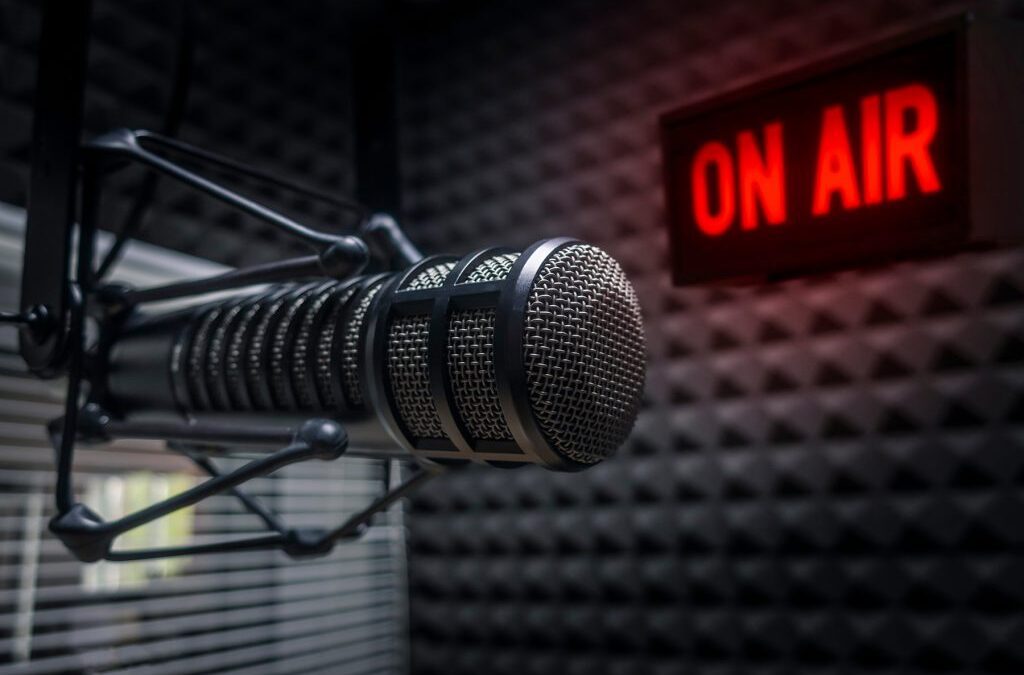The future of radio remains uncertain, with industry experts expressing concerns over the impact the rise in podcasts will have on the industry.
The annual Infinite Dial audio study, published by Edison Research last June shows the number of Australians listening to radio has fallen by 3 per cent over the past four years. In addition, 80 per cent of people 12 years and older listen to radio, in comparison to 83 per cent in 2019.
While the results have not diminished in the last year alone, the data reveals a steep drop in 2 per cent of listeners from 2020 onwards.
Radio futurologist James Cridland has speculated that a rise in other audio and streaming platforms is to blame for the decline, as radio now has to compete for the ears of listeners.
“There is an awful lot of competition for things to listen to and one of the difficulties of course is if you spend longer listening to one thing you will spend less time listening to something else,” he said.
Australians are spoilt for choice when it comes to digital audio options, as the space continues to grow in Australia, with nearly four-in-five people aged 12 and over now listening to online audio monthly.
Over the past few years the number of online audio listeners has soared, and today, nearly 45 per cent of people in Australia listen to their favourite music and podcasts via the popular online streaming service, Spotify.
According to the Infinite Dial data, monthly podcast listening in Aussies has grown to 40 per cent, spiking by 3 per cent in a single year. This estimate now exceeds data that in the United States.
Self-declared podcast fan, Emmerson Weiley said the variety and ‘tailor-made’ nature of podcasts is why he opts for them over the radio on his commute to work.
“It’s so much easier to just pick a podcast that talks about topics I am already interested in, rather than listening to the radio and waiting for certain segments that interest me,” he said.
Colorful Modern Pie Chart Graph by UOWTV
SOURCE: The Infinite Dial
While less than half of the population may not seem like much in contrast to radio ratings, Edison Research has revealed that 90 per cent of people are now aware of podcasting, a space which has grown 18 per cent over the past six years.
Mr Cridland has suggested that the amount of time spent listening to podcasts is a real threat to the radio industry.
“There is a finite time that we have every single day and if we are spending half hour with a podcast, that’s half an hour that we are not going to spend with the radio,” he said.
The average Australian reportedly listens to seven episodes of a podcast and an average seven hours and six minutes per week, the Infinite Dial has revealed.
Podcasting Infographic by UOWTV
SOURCE: The Infinite Dial
Illawarra breakfast show host Marty Haynes said he is not worried for the future of radio.
“People will always listen to radio because when they tune in each day they build a relationship with the on air talent and know what they will get each day,” he said.
Mr Haynes co-hosts the i98 Breakfast Show which is the most listened to radio program in the region, according to recent Xtra Insight results.
“Radio will always survive, people still listen to the radio in the car and at work,” he said.
For many, radio listening on the way to work has become a habit.
“The habit of waking up to the radio or driving with the radio on is definitely something that is keeping radio going,” said Mr Cridland.
A media release from the Australian Institute of Family Studies has shown the commute to work is no longer a daily reality for most Australians, as more than half now work from home.
According to the most recent Families in Australia Survey: Towards COVID Normal, 67 per cent of employed respondents were sometimes or always working from home, compared to a far less 42 percent prior to the pandemic.
Three in five of those surveyed said they, or their partner, had increased the number of hours worked from or had started to work from home, according to the Australian Government survey.
Working from Home Graph by UOWTV
SOURCE: Families in Australia Study
By age, the survey found the most likely to have increased working from home were those aged in their 40s and 50s, what Mr Cridland describes as the ‘heartland of radio listening’.
The Trends in Viewing and Listening Behaviour 2020 survey highlighted those aged 45 years and older as the key age group of radio listeners in Australia, with 49 per cent tuning in in the last seven days, compared to only 18 per cent of those between 18 and 44 years.
“It’s very difficult to turn around and say very easily what the future of radio is going to be,” Mr Cridland said.
“It might just be that in ten years time we might see that it doesn’t make any sense having a radio station for younger audiences anymore because there are so few of them tuning into the radio.”
Feature image credit: Adobe Stock

